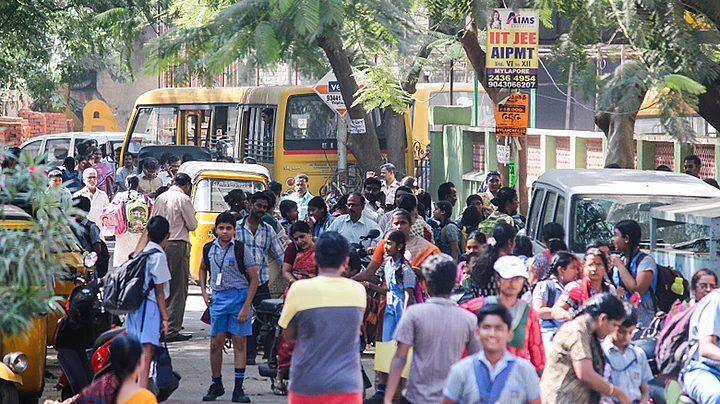When grade 10 students in Tamil Nadu schools take their final examinations this year, some of them will have an added worry – a compulsory Tamil test – imposed by an executive order of the state government in 2014. With linguistic minorities in the state – who have since got a temporary exemption from the tests – crying foul, questions are being raised about the education system and linguistic politics.
How equipped is the state’s education system to impart Tamil education on a massive scale? And for a state which once fought the imposition of Hindi on its people, is it right to impose Tamil on its immigrants?
Last year, a Tamil Nadu government order brought all schools in the state, except central government schools, under the purview of the Tamil Nadu Tamil Learning Act, 2006. As a result, schools would have to compulsorily include Tamil as one of the exams in grade 10 from the year 2015-2016.
This came as a sudden jolt to many. Minority institutions have now secured an exemption for this year from the High Court, albeit temporary.
‘Three-Language System’
Shashidaran Nair, Secretary of the Malayala Samaj, had petitioned the High Court after the first order back in 2006. After challenging the court on grounds of undermining the constitutional rights of minority educational institutions, the High Court upheld the order, reiterating that Tamil would simply be a compulsory language and not a medium of instruction.
What they don’t understand is that our mother tongue will be subjugated in the process. Even if Malayalam, Urdu, Kannada or Telugu will continue to be the medium of instruction, how will children learn without an exam testing them in the language?Shashidaran Nair, Secretary of the Malayala Samaj.
For Nair, the exemption is a small win, a relief for the time being. “But this will resume in June and we will be back where we started.”
CBSE and ICSE schools are also under the purview of the order, though the option of applying for an exemption under good reason exists, however is hard to secure. But questions on curtailing autonomy aside, many educationists are toying with the phrase ‘three-language system’ on the lines of Maharashtra and Karnataka.
“The government can keep their votes and make our lives easier if we implement this,” says Harish Mehta, Secretary of the SS Jain group of institutions, which has 3 matriculation and 2 CBSE schools under its wing.
There’s nothing wrong with having Tamil in schools, I think it’s important to learn the language. Having the three language system from class I hereon and giving students from class V to X their time to learn the language is a much better move.Harish Mehta, Secretary, SS Jain group of institutions
Further, how equipped is the state at deploying capable Tamil teachers to meet the demand?
Consider Tamil medium schools. “The root of the problem is being ignored,” argues Balaji Sampath, eminent educationist and founder of AID India, “and it’s that the government isn’t even doing a good job in its own schools.”
Sampath says despite the medium of instruction being Tamil, children enrolled in government schools can barely read or write sentences in the language.
It’s not a question of whether children can learn Tamil, it’s about how effective we can be in implementing the order on the ground.Balaji Sampath, educationist.
Even if there are many takers for making the language compulsory, elementary problems in the state’s education that aren’t attended to could open up a new can of worms.
Cultural Imposition?
Beyond the problems with the education system, there is the question of the political imposition of the language. Not so surprisingly, even those who have in the past stood for the freedom of people to choose their language for themselves, now think imposition is correct.
“I am completely for the imposition of Tamil, because I think people have to learn the language of their state. Unlike the 60s, where the move had faced a strong opposition due to the Anti-Hindi agitation, I no longer think it is a cultural imposition by the state,” says Gnani Sankaran, a political observer who has in the past written and spoken extensively on the language debate.
But the governments have handled it badly, because Tamil cannot replace the medium of instruction or subjugate the mother tongue of other minority institutions. They have to learn the language of the state and the government should make sure they are given enough facilities to learn their mother tongue.Gnani Sankaran, political observer
Gnani and others ask, if other states like Maharashtra and Karnataka are functioning fine without replacing a language under the three language formula, why shouldn’t Tamil Nadu?
It is no longer a question of imposition, because people must know the language of their state. If they choose not to, they can push for an exemption, but will find it difficult to live in the state. It doesn’t hurt to learn Tamil and I don’t understand the opposition.Gnani Sankaran, political observer
(The writer Divya Karthikeyan works with The News Minute.)
